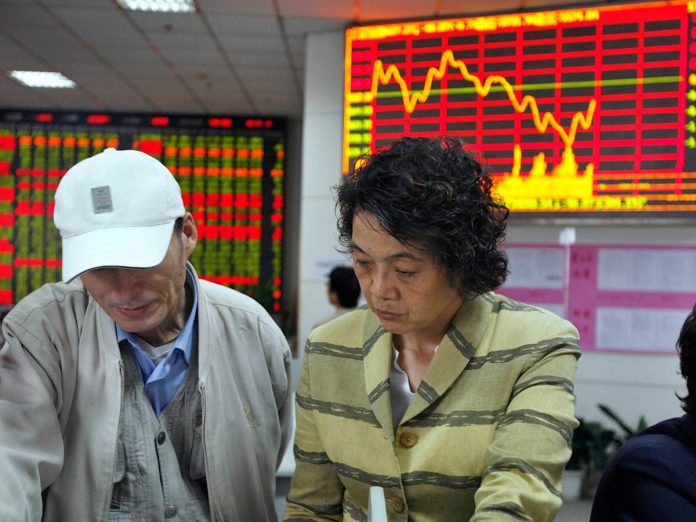-
Chinese consumers are channeling record savings into stocks as the property market slumps.
-
Shanghai and Hong Kong indexes have surged on a flood of mainland money
-
The market rally masks a weak economy with deflation, sluggish retail sales, and trade tensions
China’s consumers have been holding back on spending as the property market imploded — but they are now channeling their hoarded cash into the stock market.
After years in the dumps, Chinese equities are surging. The Shanghai Composite Index — dominated by retail investors — is up about 13% this year to date, while the blue-chip CSI 300 has gained 10%.
The rally isn’t confined to the mainland. The Hang Seng Index in Hong Kong is up about 30% this year, fueled by a flood of mainland money.
Investors poured a record $90 billion into Hong Kong stocks in the first half of 2025, according to a Reuters analysis.
There could be more gains ahead. Consumers have amassed vast savings — nearly 162 trillion Chinese yuan, or $22.5 trillion, almost double 2020 levels — but remain reluctant to buy property.
“Markets have come a long way, but there is plenty of cash on the sidelines,” wrote Rory Green, the chief China economist at GlobalData.TS Lombard, on Thursday.
The rally got an early boost from the hype around Chinese AI DeepSeek’s R-1 model, which sent Chinese and Hong Kong stocks roaring this year.
Yet stock valuations still look cheap, and the ratios of market value to GDP and household savings are below historical averages, wrote Green.
“Adjusting for political uncertainty and structurally slower growth, we think there is still room for equity gains,” he added.
Equally important is the momentum trade, as bull markets in China tend to be “fast and furious,” wrote Green.
Despite the blitz in equities, China’s already weak economy looks vulnerable amid President Donald Trump’s trade war.
Property prices slid again in July, while retail sales growth slowed to just 3.7% from a year ago, the weakest pace this year. Deflationary pressures linger.
Beijing has signaled it is ready to act, pledging to tackle deflation and rein in destructive price wars.
“Of course, the stock market is not the economy, particularly in China, where the latter tends to grow faster than the former,” wrote Green.
“Nevertheless, owing to the sheer volume of retail participants, equities can be a leading indicator of consumer confidence; and right now, inevitably, that signal is strongly positive,” he added.

